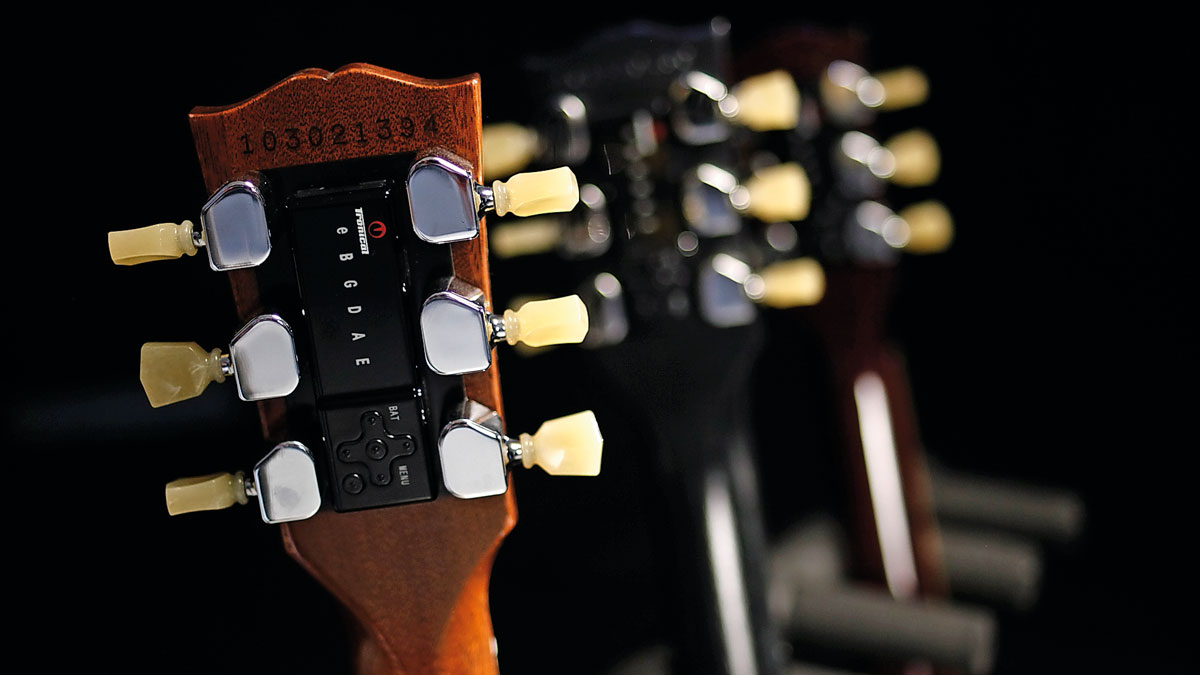Tronical to sue Gibson for $50 million
Company behind guitar auto-tuning systems, marketed as G-Force, taking legal action

Want all the hottest music and gear news, reviews, deals, features and more, direct to your inbox? Sign up here.
You are now subscribed
Your newsletter sign-up was successful
Tronical, the German firm whose Powertune automatic ‘robot’ guitar tuning systems were first introduced in 2005, has announced it is suing Gibson for $50 million.
The company, which identifies itself as 'the exclusive licensor of auto-tuning', has today stated it is bringing legal action against Gibson Brands, which has been pending before the Hamburg State Court since December 2017.
In a statement issued to MusicRadar, Tronical CEO and founder Chris Adams said, "Tronical is claiming licensing fees to the amount of 23 million US dollars from the share in the profits agreed in the contract, and a further 27 million US dollars on the grounds of Gibson’s breach of contract of the exclusive research and development agreement with Tronical, which Gibson should have met by 2026."

Tronical’s technology has been marketed on Gibson guitars as the G-Force automatic tuning system (previously known as Min-ETune), and was first introduced to the guitar giant's electrics with the advent of the Robot Guitar in 2007.
The tech became standard issue with the launch of Gibson's controversial 2015 range, but following a mixed reaction among guitarists, it was assigned to High Performance electrics only in 2016 and 2017, and appears on just a handful of models in the 2018 line-up.
The lawsuit will come as bad news for Gibson, which is already facing a potential $520 million in debt and even bankruptcy, leading to staff layoffs, factory closures and sales of existing brands, including Cakewalk.
For the full story on Gibson’s troubles so far and how we think the company can bounce back, have a read of our in-depth feature, Gibson: how did we get here?
Want all the hottest music and gear news, reviews, deals, features and more, direct to your inbox? Sign up here.
Mike has been Editor-in-Chief of GuitarWorld.com since 2019, and an offset fiend and recovering pedal addict for far longer. He has a master's degree in journalism from Cardiff University, and 15 years' experience writing and editing for guitar publications including MusicRadar, Total Guitar and Guitarist, as well as 20 years of recording and live experience in original and function bands. During his career, he has interviewed the likes of John Frusciante, Chris Cornell, Tom Morello, Matt Bellamy, Kirk Hammett, Jerry Cantrell, Joe Satriani, Tom DeLonge, Radiohead's Ed O'Brien, Polyphia, Tosin Abasi, Yvette Young and many more. His writing also appears in the The Cambridge Companion to the Electric Guitar. In his free time, you'll find him making progressive instrumental rock as Maebe.


